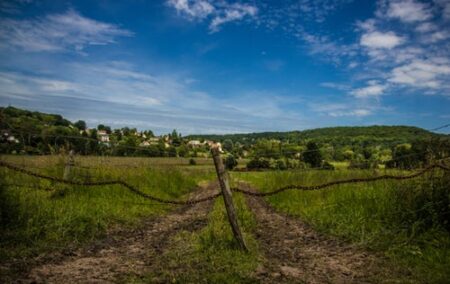There may have been some who dared to hope that President Cyril Ramaphosa’s State of the Nation Address meant that Expropriation without Compensation (EWC) was being quietly retired. They would have been disabused of this by his subsequent remarks during the debate on his address.
Maybe this is all for the good.
Responding to Economic Freedom Fighters’ leader Julius Malema, President Ramaphosa confirmed that EWC remained policy to which he was committed, and it would be very much on Parliament’s agenda.
‘Parliament will have to deal with the Land Expropriation without Compensation Bill to achieve agrarian reform and spatial justice. We want to make all rights visible.’
It is a new experience to hear proposed legislation described as the ‘Land Expropriation without Compensation Bill’. Presumably he is referring either to the constitutional amendment to which he committed his party, or to the Expropriation Bill, which will revamp the whole process of expropriation in the country.
In any event, the president, ruling party and government are firmly behind the legislation. In essence, it confers greater powers on the state, while reducing the protections afforded to private people and institutions.
The Expropriation Bill – the clearest manifestation of this policy yet made public – sets out a relatively simple process (for the state) for seizing property. It sets out a list of circumstances under which land may be taken at ‘nil’ compensation, although the reassurance that this provides is rather diluted by the assertion that the state’s right to do so is ‘not limited to’ these, (a point that many commentators have failed to grasp). It also defines expropriation in such a way that a property owner may lose his or her assets without ‘expropriation’ having taken place, and consequently, with no compensation being payable.
Indeed, the Expropriation Bill creates the conditions for a mass taking of land, along the lines of mineral and water rights. We at the Institute of Race Relations have long warned that an attempt at doing so is a very serious possibility. It was given additional impetus by comments made by Masiphula Mbongwa, a Director General in the Department of Rural Development and Land Reform, who told an audience at the World Economic Forum at Davos earlier this year that the government planned to introduce a constitutional amendment to ‘vest all land in the people of SA’. The president has not repudiated this.
Should this come to pass, the economic damage will be incalculable and will definitively destroy whatever hopes may exist for realising the economic growth that the president indicated the country should be ‘obsessed’ with. It is also extremely doubtful that this will do anything to advance any of the commendable goals that the president has taken to raising in justifying (or in many instances, as a substitute for mentioning) EWC.
Thus the president speaks of ‘establishing an institutional basis to remove constraints in accessing land.’ This is true in a sense: the EWC drive would expand access by the state – a state badly compromised by inefficiencies and pathologies – to the property of those subject to it. For government officials charged with executing this (and perhaps certain interests wielding influence over them – a distressing feature of our politics in recent years), the envisaged EWC provisions would certainly remove constraints. Whether this is something that will serve South Africa well is doubtful.
Besides, what ails land reform and the integration of our urban areas is not simply – or even primarily – a question of land. And to present it as such, whether explicitly or by implication, is not only dishonest but reckless. Successful agrarian reform, for example, has been undermined (among many other things) by the government’s refusal to confer title on beneficiaries of redistribution schemes. There is little to suggest that this is being rethought – quite the contrary if the government plans to undertake a mass seizure of the country’s land.
Likewise, while there is a genuine need for well-located urban land to deal with distorted spatial dynamics, this in itself is unlikely to be of much value if the governance malaise that afflicts our municipal governments is not addressed.
So why would any of this possibly be good news?
It is valuable to understand things as they are, and not as hope or erudite vocabulary would present them. In the push towards EWC, South Africa faces a threat to its future. It does no credit to anyone to put faith in a belief that the supposed ‘real’ intentions of a president contradict those he has publicly stated. If ever there was a case for relying on the ‘long game’, it has passed. And if EWC is to be averted, it will be because South Africans of all stripes are willing to be audible in their opposition to it.
EWC is back. South Africa’s people must decide if they are willing to allow it to stand.
Terence Corrigan is a project manager at the Institute of Race Relations.
If you like what you have just read, become a Friend of the IRR if you aren’t already one by SMSing your name to 32823 or clicking here. Each SMS costs R1. Terms & Conditions Apply.

